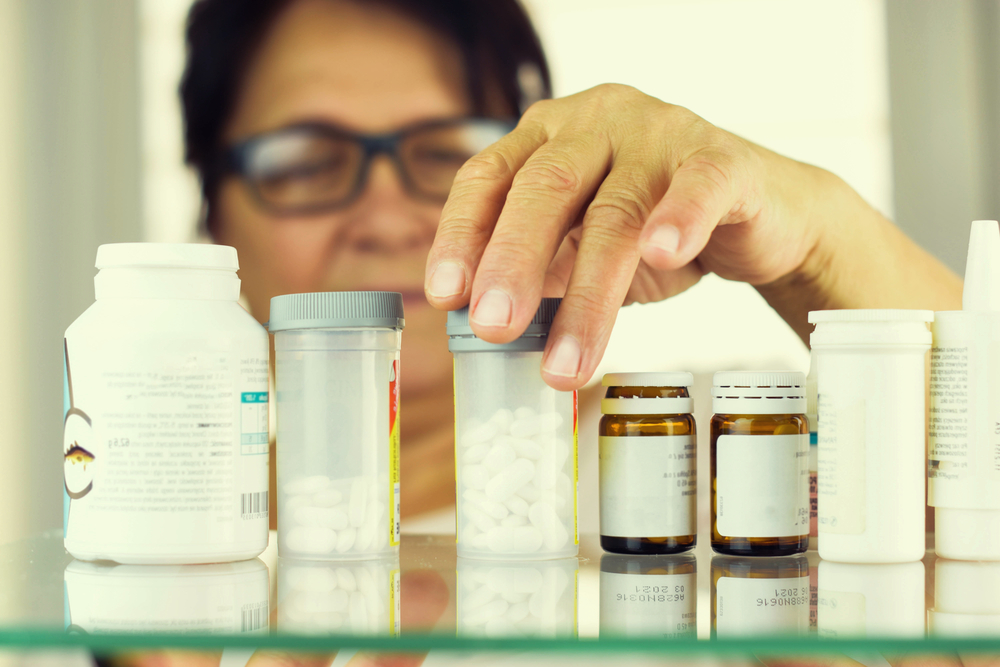Right now, there is no cure for the coronavirus. Families staying at home can take steps to prepare in case someone falls ill, to best monitor one’s health and to alleviate symptoms. Many people who get coronavirus feel lousy, but they get better in a few weeks.
Make sure, to start, that you have at least a 30-day supply of prescription medications if you take them, and check that you have a well-stocked first-aid kit, too. To get a sense of what else you should — and should not — have in your medicine cabinet at this time, we talked to doctors and pharmacists across the country. Here is what they recommend.
Thermometers
Fever is one of the most prominent symptoms of the coronavirus.
If you have a thermometer in your house already, make sure you have extra batteries. If you have two, check your temperature on both: they are not infallible. Between uses, disinfect the thermometer with alcohol or peroxide.
But some pharmacies are out of stock, and some online options are not verified or will take a long time to be delivered. If you cannot get a thermometer quickly, do not panic.
Although it can be comforting to know the number, it will be obvious if you have a fever, said Dr Stephen Eckel, a clinical associate professor at the University of North Carolina Eshelman School of Pharmacy, US. You will be cold and shivery, and will often sweat or be flushed. If you are exceptionally weak, dizzy or hallucinating, call your doctor. Consult with him or her before you go to the hospital.
Pulse oximeters
Some patients develop a pneumonia that can cause oxygen levels to drop before they experience severe symptoms. A pulse oximeter is a hand-held, clip-like device that measures the oxygen level of your bloodstream. Some clip onto fingertips or earlobes. Normal readings usually range from 95 per cent to 100 per cent. A blood-oxygen level under 90 is considered low.
There have been shortages of pulse oximeters, too. If you can’t find one right away, you can probably find one online that can be delivered in a few weeks or a month.
If you get sick and don’t have a home pulse oximeter, don’t panic. Although it can be comforting to put a number to a symptom, it is not always necessary, said Dr Albert Rizzo, the chief medical officer of the American Lung Association.
“I hate to have my patients fixate on numbers like this,” he said. “I think it’s more important that you listen to what your body is telling you.”
If you are struggling to draw a full breath, call your doctor and communicate concrete symptoms: I’m more short of breath now than I was yesterday. I can’t climb the stairs anymore. I’m coughing more.
You can also borrow a pulse oximeter from a friend (they are easily sanitised) or talk to your doctor about getting your oxygen levels checked at an urgent care centre.
Fever and pain pills
Both acetaminophen and ibuprofen will reduce a fever, and can be used to treat the uncomfortable symptoms of fever: headache, aches and chills.
Pharmacists caution against taking too much acetaminophen, which can cause severe liver damage. And you should be aware that many over-the-counter cough medications also contain acetaminophen. The total amount of acetaminophen taken in pain relievers and cold medications should not exceed 3,000 milligrams a day. Additionally, alcohol should never be consumed when taking acetaminophen.
Patients with underlying conditions should check before taking any pills. Also, children and adults have different dosages. Be sure to read the label before giving children medication.
Some doctors caution against reducing a fever at all. The immune system works better when the body’s temperature is higher, and dozens of studies have shown fever to be beneficial in fighting infections.
“When you treat with fever-reducing medicines, as has been shown again and again and again, you decrease the body’s ability to make antibodies,” said Dr Paul Offit, an infectious disease expert at the University of Pennsylvania and Children’s Hospital of Philadelphia, both in the US.
Even if it is uncomfortable, it might be best to sweat this one out.
There has been controversy about whether ibuprofen is safe to take for coronavirus. The World Health Organization said it was not aware of any research showing that the over-the-counter drug should not be taken by infected patients.
Over-the-counter remedies
There are other things that might alleviate some symptoms. Throat lozenges will soothe an aching throat, which can come from coughing. Be sure children do not choke on them. If you are worried, honey works too (although it is not recommended for children younger than two years).
The coronavirus can lead to nausea or diarrhoea. Although it can be uncomfortable, it might be best to allow whatever gastrointestinal distress happens because it is a way your body gets rid of infection.
“We are not recommending anyone take anything to stop the diarrhoea,” Dr Stacey Curtis, a clinical assistant professor at the University of Florida College of Pharmacy in the US, said. “We want them to go ahead and have diarrhoea.”
But diarrhoea can cause dehydration, so she recommends getting an electrolyte-replenisher or an oral rehydration solution (ORS) to replace minerals. Regular sports drinks are sugary and have less of an impact.
Cold medicines are largely ineffective, but antihistamines can help if you have seasonal allergies.
The most important thing, if you are feeling sick, is to communicate with a doctor or a pharmacist. Although it may take some time to wait in the line, a call to a pharmacist is free. He or she can help you talk through your concerns and offer advice.










